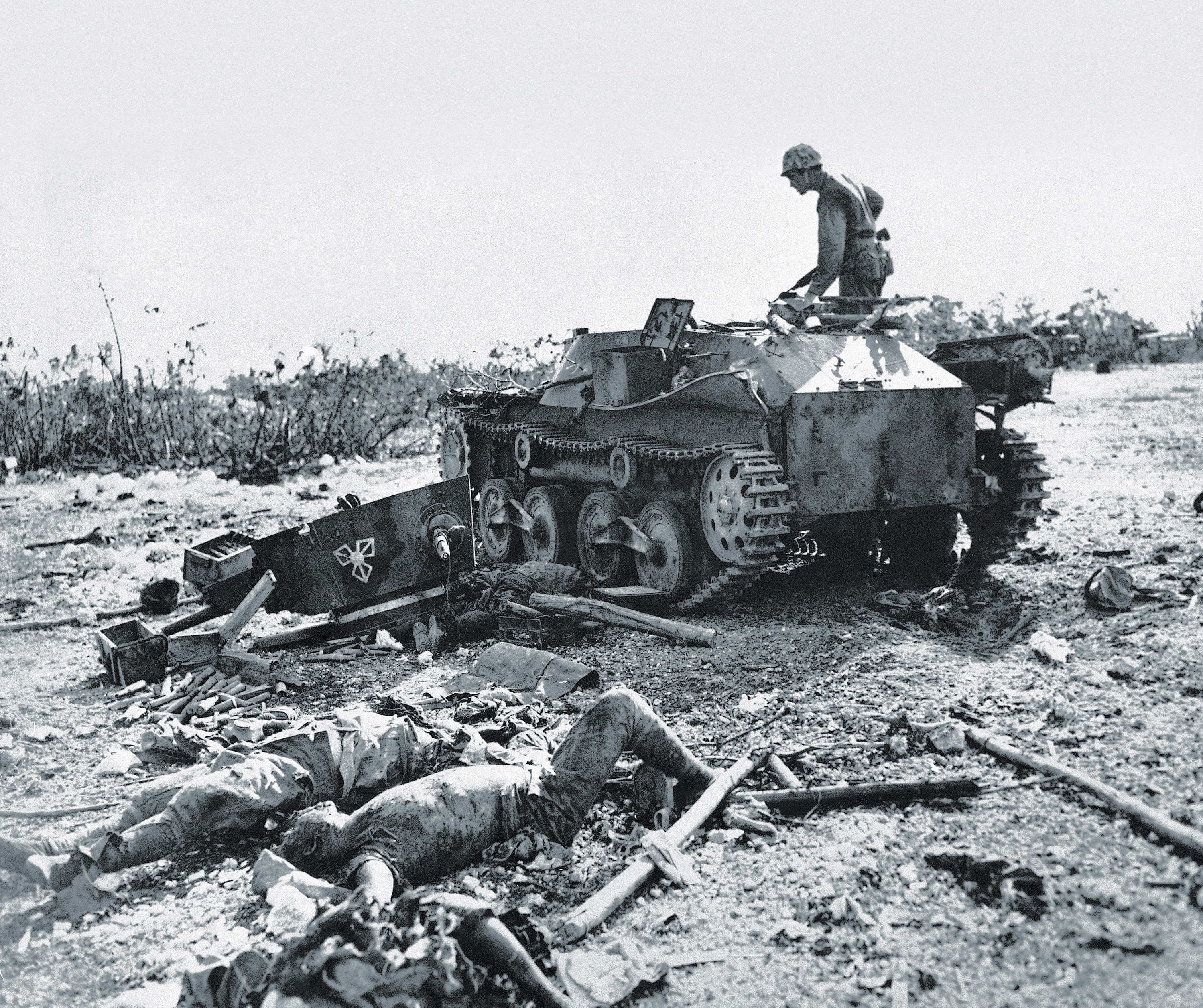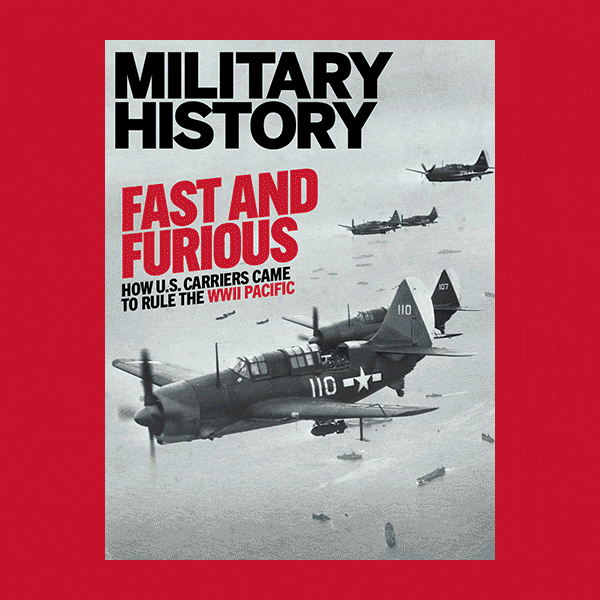Since the dawn of recorded history, war has proven an irresistible, inexhaustible and universally appealing subject. The reasons are obvious: It is the human activity in which emotions and actions simply could not be more intense. It is also the activity in which the stakes could not be higher. For individuals, it often means life or death. For city-states, nations, empires, even entire civilizations, war can mean survival and hegemony—or collapse and utter destruction.
So it’s no surprise that even today, “war books” comprise a growth segment in the publishing industry, with more titles appearing each year than any one reader could possibly get through. The truly powerful books, though, the ones that enlighten and move us, are few in number.
Most readers who care about history can point to a few favorites, the novels, memoirs or narrative histories that first drew the curtain on a panorama of conflict, triumph and tragedy. It could have been The Guns of August, A Farewell to Arms, Anabasis, Stalingrad, Slaughterhouse-Five, The Longest Day, Sword of Honour, Gates of Fire, Patton, A Rumor of War, The Great War and Modern Memory, Dispatches, Good-bye to All That, Tarawa or none of the above.
We polled a panel of contributors to Military History for their choices of the top 10 war books of all time. Their thoughtful responses, some of which are quoted herein, resulted in a long list of worthy, must-read books—and a clear consensus on the 10 best, which are listed on the following pages in chronological order.
The Iliad
(8th century BC) by Homer
“Probably there was one great master—later called Homer by the Greeks—who pulled the whole thing together around 750 BC. Whoever he was, he had the brilliant idea of cutting through all the myths and legends surrounding the Fall of Troy (if historical, it would have happened around 1200 BC) to focus on a single theme: the anger of Achilles.…Through Achilles the pity, terror and horror of war is focused, as well as its screaming thrills and delights.”
“Even after thousands of years, it still conveys the intensity of combat with startling immediacy.”
“Homer presents the clash of fundamental approaches: straightforward martial power and prowess, as embodied by Achilles, and wisdom or cunning, as practiced by Odysseus.”
History of the Peloponnesian War
(423–411 BC) by Thucydides
“One of the ironies of the writing of military history is that the greatest book on war ever written was the second history ever written—namely, this work. Thucydides examines the great themes of war from the highest levels of the making of strategy and policy to the moral dimensions and the sharp end of battle. Few military historians have done it as well, none better.”
“Written more than 2,000 years ago, this book still contains the best description of why countries go to war, the best funeral oration and the best depiction of political realism ever set down in print.”
“The first great book on war in all its aspects, and still one of the best.”
On War
(1832) by Carl von Clausewitz
“On War represents the most ambitious effort ever made by a theorist of human conflict to systematize war and understand it for what it is.”
“Absolutely essential for understanding the human phenomenon of war.”
“Following the Army War College dictum: no matter the question, the answer is always Clausewitz.”
War and Peace
(1868) by Leo Tolstoy
“Tolstoy’s depiction of the 1812 Battle of Borodino and the events leading up to that terrible battle is the finest piece of war fiction ever written.”
“The Battle of Borodino is probably the best account of the gritty warfare of this period, to say nothing of Napoleon’s abandonment of 30,000 sick and wounded in the city of Vilnius, Lithuania.”
The Red Badge of Courage
(1895) by Stephen Crane
“The best Civil War story told from the perspective of the common soldier.”
“The best psychological portrait of a soldier dealing with his fear in battle.”
The Personal Memoirs of U.S. Grant
(1895) by Ulysses S. Grant
“Most memoirs by generals are filled with lies, deceptions and half-truths. Grant’s memoirs represent one of the few exceptions to that rule, being honest, deeply insightful and a brilliant piece of writing. Mark Twain argued that Grant’s memoirs were the greatest piece of English literature written in the 19th century.”
“The gold standard of senior commander memoirs.”
“The best autobiography ever written.”
The Face of Battle
(1976) by John Keegan
“Quite simply, a landmark book. Keegan inspired the sociomilitary, common soldier–oriented school of thought that has rejuvenated the study of warfare in the last few decades.”
“Perhaps the most influential work of military history published in the past half century.…What makes this book a classic is its incisive analysis of the shortcomings of the battle history genre.”
“Still the best work on the human dimension of war in three periods: Agincourt, Waterloo and the Somme.”
With the Old Breed
(1981) by E.B. Sledge
“Sledge’s remarkable story of his harrowing experiences as a Marine at Peleliu and Okinawa stand out because he was part observer, part participant and part scholar—perceptive, brutally honest storytelling.”
“People speak easily of the horrors of war. This searing memoir of the Pacific War makes the reader experience the truth beneath the cliché.”
“My father fought there and handed me the book, saying, ‘It was just as he describes.’”
Battle Cry of Freedom
(1988) by James McPherson
“McPherson’s classic stands out as a lucid, beautifully written, balanced account of the Civil War. From economics to politics to social consequences and battle history, he leaves no stone unturned.”
“Best single-volume treatment of the war.”
“Perfect for anyone wanting to get an overview of the conflict in a single book.”
We Were Soldiers Once…and Young
(1992) by Lt. Gen. Harold Moore and Joseph Galloway
“Moore and Galloway have written by far and away the best piece of military history on one of the early battles of the Vietnam War. It is a story of effective and ineffective military leadership. It also should put to rest the claims of some commentators that the U.S. military lost none of the battles in the war. Landing Zone Albany was nothing other than a defeat that came close to being the 20th century’s Battle of the Little Bighorn. This is a great book.”
“As participants and latter-year commentators, Moore and Galloway somehow found a way to distance themselves from their own experiences in the 1965 Battle of Ia Drang, even as they brought the fighting to life in shocking human terms.”
Originally published in the December 2008 issue of Military History.






